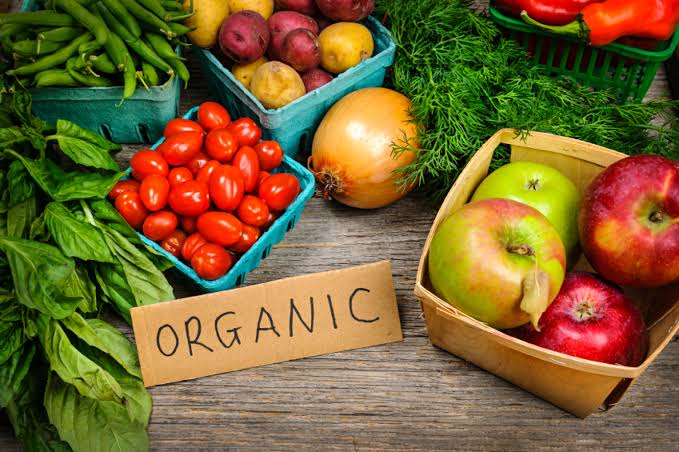Organic and processed foods have been debated for years. But what is the real difference between these two types of foods? Are organic foods really healthier than processed foods, or is it all just a marketing ploy? In this blog post, we’ll be exploring the shocking truth about organic foods vs. processed foods and uncovering the real pros and cons of each. By the end of this article, you will be able to make an informed decision on which type of food to buy for you and your family.
Table of Contents
What are organic foods?
Organic foods are those that are produced without the use of synthetic pesticides, synthetic fertilizers, genetic engineering, sewage sludge, or irradiation. Organic food is grown and produced in a way that preserves the environment and sustains the health of humans, animals, and the planet. Organic food is free from artificial preservatives and flavors, as well as hormones and antibiotics. Organic food is often referred to as “health foods” as they have been proven to be much more nutritious than conventional foods. Eating organic food is an important part of living a healthy life and helps ensure that you are getting the vitamins, minerals, and other essential nutrients needed for optimal health.


What are processed foods?
Processed foods are any food that has been altered from its natural state in some way. This includes anything from canned vegetables to frozen entrees to pre-packaged snacks. Many processed foods are made with additives and preservatives to enhance flavor, texture, or color and to extend shelf life. Processed foods can also contain high levels of fat, salt, and sugar. While some processed foods are created with health in mind, many are not, and they can compromise a healthy diet. Consuming too much-processed food can be detrimental to your overall health.
Processed foods can be convenient, but they often lack nutritional value compared to fresh and organic health foods. Eating too much-processed food can lead to health issues such as weight gain, diabetes, and heart disease, so it’s important to limit the amount of processed food you consume and try to stick with fresh, organic options. Eating a balanced diet full of fresh fruits, vegetables, proteins, and other healthy foods is essential for leading a healthy life.



The pros and cons of organic foods
Organic food is grown or raised using natural methods without the use of synthetic chemicals and they have more health and environmental benefits than processed foods.
Pros of Organic Foods
- Health Benefits: Organic foods are typically richer in vitamins, minerals, and antioxidants compared to processed foods. This is because they are grown using natural methods that promote the health of the soil and the plants. Organic foods are also free from harmful pesticides, antibiotics, and growth hormones, which can be harmful to human health when consumed in large quantities.
- Environmental Benefits: Organic farming practices are generally more sustainable and eco-friendly than conventional farming practices. Organic farming methods often focus on soil conservation, water conservation, and biodiversity preservation. This makes organic farming a more sustainable approach to food production, which helps to protect the environment and preserve natural resources for future generations.
- Ethical Considerations: Organic farming practices are often more ethical than conventional farming practices. This is because organic farmers typically avoid the use of animal products such as animal manure, which can be obtained from factory farms that use inhumane and unsustainable methods of animal husbandry.
Cons of Organic Foods
- Cost: Organic foods are often more expensive than conventional foods. This is because organic farming practices are more labor-intensive and require more time and effort than conventional farming practices. Additionally, organic farmers often face higher costs for certification, marketing, and distribution.
- Limited Availability: Organic foods are often not as widely available as conventional foods. This is because organic farming practices are still relatively new and are not yet widely adopted by farmers. Additionally, organic farming is often more challenging and requires more specialized knowledge and equipment, which can limit the number of farmers who are able to produce organic foods.
- Quality Variability: Organic foods can be more variable in quality than conventional foods. This is because organic farming practices often rely on natural methods of pest and weed control, which can be less effective than synthetic pesticides and herbicides. This can result in more variability in the quality and quantity of organic crops.
Pros and Cons of Processed Foods
Processed food is manufactured through a series of industrial processes that often involve the use of artificial additives, preservatives, and flavors. In this blog post, we will examine the pros and cons of both organic and processed foods to help you make informed decisions about the food you eat.
Pros of Processed Foods
- Convenience: Processed foods are often more convenient and easy to prepare than fresh foods. This is because they are pre-packaged and can be stored for longer periods of time, which makes them more convenient for busy people who don’t have time to prepare fresh meals.
- Cost: Processed foods are often less expensive than fresh foods. This is because they can be produced in large quantities and are often sold at a lower price point than fresh foods.
- Variety: Processed foods offer a wide range of flavors and textures that are not found in fresh foods. This is because processed foods often contain added flavors, preservatives, and other additives that enhance their taste and texture.
Cons of Processed Foods
- Health Risks: Processed foods are often high in calories, sugar, salt, and unhealthy fats. This can lead to a variety of health problems, including obesity, type 2 diabetes, heart disease, and other chronic illnesses.
- Nutritional Deficiencies: Processed foods are often lacking in essential nutrients such as fiber, vitamins, and minerals. This is because they are often stripped of their natural nutrients during processing and are often fortified with synthetic nutrients that may not be as beneficial as their natural counterparts.
- Environmental Impact: Processed foods are often produced using unsustainable and environmentally harmful methods. This includes the use of synthetic fertilizers, pesticides, and herbicides, which can pollute the soil,
Which is better for you?
Organic and processed foods are two broad categories of food that are often compared in terms of their nutritional value and health benefits. Organic foods are those that are grown or produced without the use of synthetic pesticides, fertilizers, and other chemicals, while processed foods are those that have been altered in some way from their natural state through methods such as canning, freezing, or drying, and often contain added preservatives, sugars, and other artificial ingredients.
When it comes to determining which type of food is better for you, there are several factors to consider, including nutritional content, potential health risks, and environmental impact.
Nutritional Content:
Organic foods are often touted as being more nutritious than processed foods, as they are typically grown in nutrient-rich soil without the use of synthetic chemicals. In addition, organic foods are often fresher than processed foods, which can lose nutrients during the processing and packaging process.
However, the nutritional content of organic foods can vary depending on several factors, such as the type of crop, soil quality, and weather conditions. Processed foods, on the other hand, can be fortified with added nutrients, such as vitamins and minerals, to enhance their nutritional value.
Health Risks:
Processed foods are often criticized for their potential health risks, as they can contain high levels of sodium, sugar, and unhealthy fats, which can contribute to chronic health conditions such as obesity, diabetes, and heart disease. In addition, some processed foods may contain harmful additives, such as artificial colors and flavors, that can have negative effects on health.
Organic foods, on the other hand, are generally considered to be safer than processed foods, as they are not treated with synthetic pesticides and other chemicals that can be harmful to human health. However, there is still debate among scientists about the long-term health effects of consuming organic foods.
Environmental Impact:
One of the main benefits of organic foods is their positive impact on the environment. Organic farming practices are designed to promote biodiversity, conserve natural resources, and reduce pollution and greenhouse gas emissions. In contrast, processed foods often require significant amounts of energy and resources to produce and transport, and can contribute to environmental problems such as pollution and climate change.
Conclusion:
In summary, the debate over whether organic or processed foods are better for you is complex and multifaceted. While organic foods may offer some nutritional benefits and are generally considered safer for human health and better for the environment, processed foods can provide convenience and sometimes contain added nutrients. Ultimately, the best approach is to strive for a balanced diet that includes a variety of whole foods, both organic and processed, while limiting intake of added sugars, unhealthy fats, and artificial ingredients.

